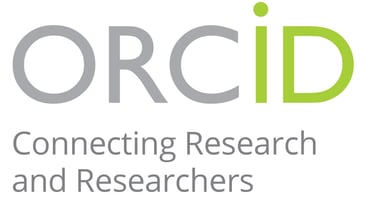Burnout among Oncology Health Workers in Sri Lanka: Challenges and Insights from a Research Study
By Teny Agalawela; Sai Sanathani Sridharan
Published: November 20, 2024
References: 20
|
|
Research
|
Introduction
Breaking bad news to patients and families on topics such as life-limiting diagnosis, acceleration of disease, cessation of treatments, constraints to treatment delivery and the death of a patient is recognised to be a highly distressing and an emotive task (Francis & Robertson, 2023). This complex task of breaking bad news to patients is a common occurrence among the daily tasks of medical professionals. The task of breaking bad news provokes significant distress which is often associated with manifestations of burnout (Shanafelt & Dyrbye, 2012). While much research focuses on the impact of breaking bad news on patients and families, the effect on the individuals delivering the news is often overlooked. Existing literature on breaking bad news primarily centres on patient-related aspects, leaving a significant gap in research on how regularly delivering bad news affects the mental health of medical professionals. Cancer is reported to be a major contributor to the high mortality rates in Sri Lanka, a lower middle-income country, which is an island situated in South Asia (Jayarajah & Abeygunasekera, 2021). National Cancer Control Programme (2023), reported in 2020 there was a crude incidence rate (CR) of 171.8 per 100,000 population with a newly diagnosed 37,648 patients. Furthermore, in the year 2020, 5353 deaths were reported from cancer in government hospital settings (Ministry of Health, 2020). Higher incidence rates of cancer in Sri Lanka require a well-trained and larger workforce to address its demands. In the field of Medicine, Oncology is recognised as one of the most stressful medical specialities. The recent surge in the incidence rates of cancer worldwide has become a threat to healthcare systems globally, especially in developing nations where they are ill-equipped to deal with the complexities of the disease and the expensive treatments (Oxtoby, 2016; Ferlay et al., 2021). Medical professionals in the oncology field encounter a myriad of stressful situations as they deal with patients suffering from a high mortality rate. The repeated exposure to breaking bad news as they deal with higher workloads could further increase the manifestation of burnout. Prior research conducted in the country provides insight into the oncology workforce present in the country highlighting the burdens they face (Jayarajah & Abeygunasekera, 2021). The scarcity of resources and shortage of staff have led to a higher clinical workload, contributing to increased work stress among oncologists in the country. Reports indicate that the majority of medical officers in oncology consult with over 450 new patients annually and are on-call every day of the week. Additionally, unlike in other countries, about two-thirds of medical officers in Sri Lanka work in both the public and private healthcare sectors (Gunasekera et al., 2021). At present in Sri Lanka, the burden of cancer is on the rise as the incidence rate of cancer has doubled over the last 25 years (Jayarajah & Abeygunasekera, 2021), this could lead to a surge in the workload for the oncology workforce resulting in higher levels of burnout experienced while dealing with breaking bad news. However, there are no prior studies conducted in the country investigating the impact of breaking bad news on the burnout manifested in the oncology workforce. This article aims to offer future researchers an overview of the limitations encountered when studying burnout among oncology professionals delivering bad news in Sri Lanka. Drawing from the authors' study on the association between sleep quality, resilience, and burnout, it provides recommendations for overcoming these challenges. These insights can help future researchers avoid replicating the same limitations, ultimately saving time and resources.
Background
Burnout manifestation is often associated with the state of exhaustion in physical, mental and emotional domains due to excessive and prolonged stress; it is often accompanied by decreased levels of motivation, reduced work performances and negative cognitions towards themselves and others (American Psychological Association, 2018). Furthermore, emotional exhaustion, low personal accomplishment and depersonalization are the three dimensions associated with burnout (Chen et al., 2023). Findings from multiple studies conducted in various settings reported that breaking bad news to patients provokes significant distress in health practitioners provoking more stress that further amplifies the manifestation of burnout (Shanafelt & Dyrbye, 2012; Maslach & Leiter, 2016; Balendran et al., 2021; Francis & Robertson, 2023). Furthermore, sleep quality (Vela-Bueno et al., 2008; Söderström et al., 2012; Chen et al., 2023) and resilience (Taku, 2014; Kutluturkan et al., 2016; Chen et al., 2023) were recognised as factors associated with burnout levels experienced; poor sleep quality and lower resilience were reported to be associated with increased burnout scores. There is a scarcity of research investigating differences in burnout based on sociodemographic variables in the field of oncology. However, the existing research suggests that burnout levels show variation depending on age, gender, years of experience, number of working hours and availability of support systems and coping mechanisms (Amoafo et al., 2015; Kathriarachchi & Rowntree, 2016; Gómez-Urquiza et al., 2017; Balendran et al., 2021).
Method and Results
This research study was conducted to investigate the association between sleep quality and resilience with burnout experienced. Furthermore, the study also investigated whether burnout scores differ with sociodemographic variables such as gender, age, marital status, living arrangements (with family, away from family), years of experience, number of working hours per day, training received on breaking bad news and availability of support systems (group meeting regularly) and/or coping strategies (exercise, counselling) to overcome burnout. The research was conducted using a non-experimental, quantitative approach conducted using a predictive correlational design. The research study recruited a volunteer, convenience sample of 40 participants (17 males and 23 females) from a population of oncologists and medical officers between the ages of 25 to 63 years (M = 37, SD = 8.53) residing in Sri Lanka having experience of informing bad news regarding cancer to patients with no prior diagnosis in mental health issues. The sample was recruited by circulating a poster containing the link for participation on social media platforms such as Facebook, WhatsApp, and Instagram. The data collection was conducted utilizing a demographic questionnaire, the Burnout Assessment Tool (BAT) (Schaufeli, Desart, & De Witte, 2020), the Pittsburgh Sleep Quality Index (Buysse et al., 1989) and the Resilience Scale (Wagnild & Young, 1993) via the Qualtrics web-based survey software. The research study was conducted with ethical approval from the Research Ethics Committee of the School of Human and Social Sciences, University of West London. Furthermore, the study was conducted while adhering to the British Psychological Society [BPS] (2021a), Codes of Human Research Ethics and ethical guidelines for internet-mediated research (BPS, 2021b) to mitigate any ethical issues. During the study, initially, the participants read the participant information sheet and then they signed the consent form. Then the participants completed the demographic sheet and proceeded to the questionnaires in the order of The Resilience Scale (Wagnild & Young, 1993), the Pittsburgh Sleep Quality Index (Buysse et al., 1989), and the Burnout Assessment Tool (Schaufeli, Desart, & De Witte, 2020). Upon completion of the questionnaires, the participants were provided with a debriefing. The data analysis of the study was computed using the statistical software, IBM SPSS software version 29.0. Sleep quality and Resilience were significant predictors of Burnout and were tested using a Hierarchical Multiple Linear Regression. The findings of the study reported participants in the sample expressed higher sleep quality (M = 4.80, SD = 2.97) and higher resilience (M = 126.40, SD = 21.04). The findings reported that sleep quality and resilience together were significant predictors of burnout experienced (R2 = 36%), predicting 36% of the variance in burnout scores based on sleep quality and resilience. Furthermore, the findings indicate that there is no significant difference in burnout based on living arrangements and there is no significant association between sociodemographic factors (age, gender, marital status, training received on breaking bad news and availability of support systems and/or coping strategies) and burnout. As a pioneer conducted in the country, this study provides insight into the association of the many variables with burnout manifested while breaking bad news. The major limitations identified in the study were smaller sample size, a lack of culturally validated measures developed for measuring burnout due to breaking bad news in the oncology workforce and the quantitative design of the study
Recommendations for Future Studies
The small sample size of the study was primarily due to a low response rate and limitations in the recruitment strategy. Oncology professionals often face heavy workloads and high stress, making it challenging for them to find time to complete surveys. Burnout may also contribute to incomplete responses. Future research could address this by implementing a mandatory survey via the Ministry of Health, targeting all oncologists and medical officers in cancer units to improve response rates and obtain a more comprehensive dataset. Currently, there is no culturally validated tool in the country specifically designed to measure burnout related to breaking bad news among oncology professionals. The burnout scores obtained in this study reflect a mix of factors, including the stress from breaking bad news, heavy workloads, and external influences like the ongoing economic crisis. Existing scales do not isolate burnout caused solely by the act of delivering bad news. Future research should develop a culturally validated questionnaire tailored to measure burnout primarily associated with this specific task within the oncology workforce. The quantitative design using self-reports and a web-based survey introduces potential response and social desirability biases, impacting data validity. Additionally, this method does not capture deeper insights into underlying thoughts, motivations, or factors contributing to burnout that are not quantifiable through standard questionnaires. Future research should consider a mixed-methods approach, incorporating both quantitative and qualitative designs, to gain a more comprehensive understanding of the factors driving burnout. Addressing burnout resulting from the frequent delivery of bad news is essential, given the high burnout levels in the oncology workforce. With the increasing global and local incidence of cancer, understanding the relationship between burnout and factors such as sleep quality and resilience is critical. Future research is needed to bridge the significant gap in understanding how regular bad news delivery impacts the mental health of medical professionals. The findings from such studies will be vital in developing targeted interventions to reduce burnout, ultimately enhancing the quality of life and job satisfaction among oncology professionals.
References
American Psychological Association. (2018). Resilience. APA Dictionary of Psychology.
https://dictionary.apa.org/resilienceAmoafo, E., Hanbali, N., Patel, A., & Singh, P. (2015). What are the significant factors associated with burnout in doctors? Occupational Medicine, 65(2), 117–121.
https://doi.org/10.1093/occmed/kqu144Balendran, B., Bath, M. F., Awopetu, A. I., & Kreckler, S. M. (2021). Burnout within UK surgical specialties: A systematic review. The Annals of The Royal College of Surgeons of England, 103(7), 464-470.
https://doi.org/10.1308/rcsann.2020.7058British Psychological Society. (2021a). BPS Code of Human Research Ethics.
https://doi.org/10.53841/bpsrep.2021.inf180British Psychological Society. (2021b). Ethics guidelines for internet-mediated research.
https://doi.org/10.53841/bpsrep.2021.rep155Buysse, D. J., Reynolds, C. F., 3rd, Monk, T. H., Berman, S. R., & Kupfer, D. J. (1989). The Pittsburgh Sleep Quality Index: A new instrument for psychiatric practice and research. Psychiatry Research, 28(2), 193–213.
https://doi.org/10.1016/0165-1781(89)90047-4Chen, Z., Foo, Z. S. T., Tang, J. Y., Sim, M. W. C., Lim, B. L., Fong, K. Y., & Tan, K. H. (2023). Sleep quality and burnout: A Singapore study. Sleep Medicine, 102, 205-212.
https://doi.org/10.1016/j.sleep.2022.12.026Ferlay, J., Colombet, M., Soerjomataram, I., Parkin, D. M., Piñeros, M., Znaor, A., & Bray, F. (2021). Cancer statistics for the year 2020: An overview. International Journal of Cancer.
https://doi.org/10.1002/ijc.33588Francis, L., & Robertson, N. (2023). Healthcare practitioners’ experiences of breaking bad news: A critical interpretative meta-synthesis. Patient Education and Counseling, 107, 107574.
https://doi.org/10.1016/j.pec.2022.107574Gómez-Urquiza, J. L., Vargas, C., De la Fuente, E. I., Fernández-Castillo, R., & Cañadas-De la Fuente, G. A. (2017). Age as a risk factor for burnout syndrome in nursing professionals: A meta-analytic study. Research in Nursing & Health, 40(2), 99–110.
https://doi.org/10.1002/nur.21774Gunasekera, S., Seneviratne, S., Jalink, M., Joseph, N., Ariyarathna, Y., Booth, C. M., & Wijeratne, D. T. (2021). Clinical oncology workload in Sri Lanka: Infrastructure, supports, and delivery of clinical care. JCO Global Oncology, 7, 1703–1710.
https://doi.org/10.1200/GO.21.00345Jayarajah, U., & Abeygunasekera, A. M. (2021). Cancer services in Sri Lanka: Current status and future directions. Journal of the Egyptian National Cancer Institute, 33(13).
https://doi.org/10.1186/s43046-021-00070-8Kathriarachchi, M., & Rowntree, G. (2016). A pilot study on burnout syndrome: Its existence, causes, and coping strategies practiced by medical professionals in Colombo South Teaching Hospital, Sri Lanka. Sri Lankan Journal of Human Resource Management, 6(1).
https://journals.sjp.ac.lk/index.php/sljhrm/article/view/2784Kutluturkan, S., Sozeri, E., Uysal, N., & Bay, F. (2016). Resilience and burnout status among nurses working in oncology. Annals of General Psychiatry, 15(33).
https://doi.org/10.1186/s12991-016-0121-3Maslach, C., & Leiter, M. P. (2016). Understanding the burnout experience: Recent research and its implications for psychiatry. World Psychiatry, 15(2), 103–111.
https://doi.org/10.1002/wps.20311Ministry of Health. (2020). Annual Health Bulletin.
http://www.health.gov.lk/moh_final/english/public/elfinder/files/publications/AHB/2023/Annual%20Health%20Bulletin%202020(Updated%20on%202023.02.02).pdfNational Cancer Control Programme. (2023). National Cancer Incidence and Mortality Data Sri Lanka, 2020.
https://www.nccp.health.gov.lk/storage/post/pdfs/Cancer%20Control%20Programe%202023%2006%2021.qxp_Layout%201.pdfOxtoby, K. (2016). Doctors’ own mental health issues. BMJ, 352.
https://doi.org/10.1136/bmj.i1238Schaufeli, W. B., Desart, S., & De Witte, H. (2020). Burnout Assessment Tool (BAT)-Development, validity, and reliability. International Journal of Environmental Research and Public Health, 17(24), 9495.
https://doi.org/10.3390/ijerph17249495Shanafelt, T., & Dyrbye, L. (2012). Oncologist burnout: Causes, consequences, and responses. Journal of Clinical Oncology, 30(11), 1235–1241.
https://doi.org/10.1200/JCO.2011.39.7380
About the Authors
Teny Agalawela is a lecturer and a researcher, who is pursuing her training to be a Health Psychologist. She has a MSc. Clinical and Health Psychology and a BSc.(Hons) Psychology from the University of West London. She has over 9 years of experience in Secondary Education specializing in Biology. She is currently a lecturer in Biology and Psychology for Foundations and Undergraduate students. She is driven to advance in the field of Health Psychology to help people deal with psychological and emotional aspects of health and illnesses by promoting healthier lifestyles.


Teny Agalawela
Dr Saisanathani Sridharan is the Academic Head of Human and Social Sciences at ANC Education, Sri Lanka, where she leads the development and delivery of interdisciplinary programmes in psychology and related fields. With a focus on maintaining high academic standards, she oversees a team of lecturers and coordinators, ensuring alignment with the rigorous requirements of the University of West London (UWL), and Pearson, ANC's partner institutions.
As a passionate lecturer in health psychology and research methods, particularly in quantitative approaches, Saisanathani brings a strong research orientation to her teaching. Her expertise spans cognitive and health psychology, where she investigates cognitive functions, health behaviours, and the psychological determinants of well-being.
In addition to her academic role, Saisanathani is the founder of the Help Ever Foundation, a nonprofit organization dedicated to improving community health in Sri Lanka.
Saisanathani holds an MSc in Clinical and Health Psychology from the University of West London and an MBBS from Sichuan University.


Sai Sanathani Sridharan
"Empowering Minds, Inspiring Futures: Bridging Academia and Innovation Globally"
Wells Resource


